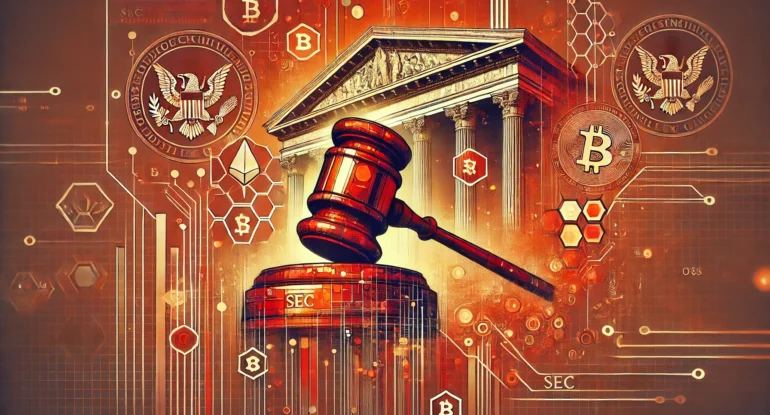SEC Charges Digital Currency Group and Former Genesis CEO Over Misleading Investors After 3AC Collapse

According to the SEC’s Jan. 17 filing, DCG and Moro have agreed to pay a combined $38.5 million in civil penalties. Of this amount, DCG is responsible for $38 million, while Moro will pay $500,000. Both parties agreed to the settlement without admitting or denying any violations of the Securities Act of 1933.
The Impact of the Three Arrows Capital Collapse
Genesis, a crypto lending platform, filed for Chapter 11 bankruptcy in January 2023 after 3AC defaulted on substantial loans in 2022. The collapse of 3AC—a major borrower of Genesis—sent shockwaves through the crypto industry, resulting in widespread financial turmoil for companies with exposure to the defunct hedge fund.
In one of the most notable missteps, 3AC had purchased approximately 10.9 million locked LUNA tokens for $570 million before the Terra ecosystem’s catastrophic collapse in May 2022. This massive investment dwindled to a mere $670 in value by June 2024, dealing a devastating blow to 3AC’s balance sheet.
As 3AC failed to meet its margin calls, its financial woes rippled across the industry. On June 27, 2022, a British Virgin Islands court ordered 3AC to liquidate its assets. This same day, Voyager Digital issued a notice of default against the hedge fund for failing to repay a loan of 15,250 Bitcoin.
Misleading Statements and the SEC’s Case
In the aftermath of 3AC’s collapse, Genesis and DCG sought to reassure investors. Former CEO Michael Moro issued a statement in July 2022, claiming that losses tied to 3AC had been mitigated. However, the SEC alleges that both Genesis and DCG misled investors about the extent of the financial damage caused by 3AC’s default.
The SEC’s cease-and-desist order stated that the defendants “failed to provide accurate and complete information,” leading to a breach of trust with investors.
A Legal Turning Point
The settlement marks a significant moment in the ongoing fallout from the 3AC debacle and reflects the SEC’s increased scrutiny of the crypto sector. DCG’s and Moro’s willingness to settle without admitting wrongdoing underscores the complex legal and regulatory challenges that continue to shape the industry.
While the SEC has described its enforcement actions as necessary for investor protection, critics argue that the lack of regulatory clarity has contributed to these disputes. The settlement may serve as a reminder for companies in the crypto space to exercise greater transparency and compliance in their operations.
The SEC’s action against DCG and Genesis is just the latest chapter in the evolving regulatory landscape for crypto. As these legal battles unfold, the industry is left to navigate the fine line between innovation and regulation.









